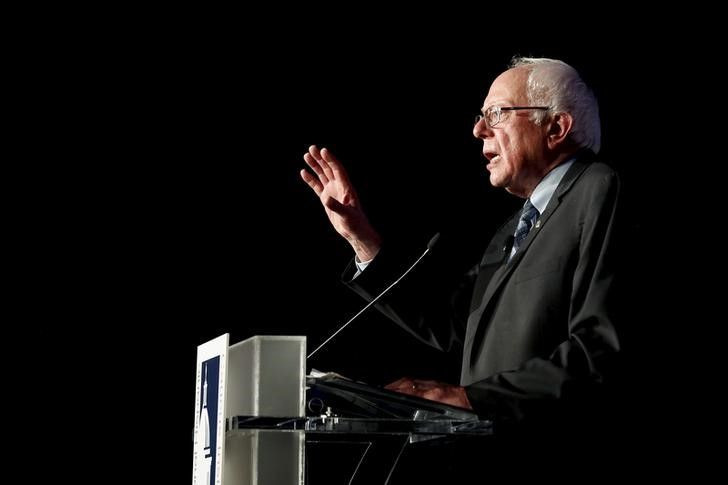Presidential Candidate Bernie Sanders Opposes FDA Nominee

(Reuters) - U.S. Senator Bernie Sanders, who is seeking the Democratic presidential nomination, said on Friday he will vote against Dr. Robert Califf as the next commissioner of the Food and Drug Administration, citing the nominee's close ties to the pharmaceutical industry.
"Instead of listening to the demands of the pharmaceutical industry and their 1,400 lobbyists, it is about time that the FDA and Congress started listening to the overwhelming majority of the American people, who believe that medicine is too expensive," Sanders said in a news release announcing his intention to vote against Califf.
President Barack Obama nominated Califf, a prominent cardiologist and researcher at Duke University who joined the FDA in January as a deputy commissioner, on Sept. 15.
Opposition by the Vermont senator, at a time when soaring U.S. prices for prescription medicines have come under fire by politicians, payers and patient advocacy groups, could signal a rockier-than-expected road for Califf at upcoming Senate confirmation hearings. Democratic frontrunner Hillary Clinton has also made reining in healthcare costs a centerpiece of her campaign.
"It is time for the United States to join the rest of the industrialized world by implementing prescription drug policies that work for everybody, not just the CEOs of the pharmaceutical industry," Sanders said.
Under current U.S. laws, decisions by the FDA are not allowed to take cost or pricing into account. Agency critics have accused it of being too easy on the drug industry on approvals and oversight of new medicines.
If confirmed, Califf would succeed Dr. Stephen Ostroff, the acting commissioner since Dr. Margaret Hamburg stepped down earlier this year.
Industry observers had not expected Califf to face significant opposition when he was nominated for the post, given his experience and credentials, and many medical organizations praised the choice.
Sanders cited reports that Califf's clinical research center received the majority of its funding from the pharmaceutical and medical device industry, and that he received consulting fees from drugmakers.
Kevin Griffis, spokesman for the Department of Health and Human Services, said Califf donated the consulting fees to not-for-profit organizations.
"Dr. Robert Califf's professional career has been dedicated to advancing biomedical research, including the rigorous evaluation of the safety, efficacy and appropriate use of both new medical products and those already on the market."
Sanders is not the first to oppose Califf. The AIDS Healthcare Foundation said "his cozy relationship with the pharmaceutical industry is simply too close for comfort."
(Reporting by Bill Berkrot in New York; Editing by Steve Orlofsky and Matthew Lewis)



























